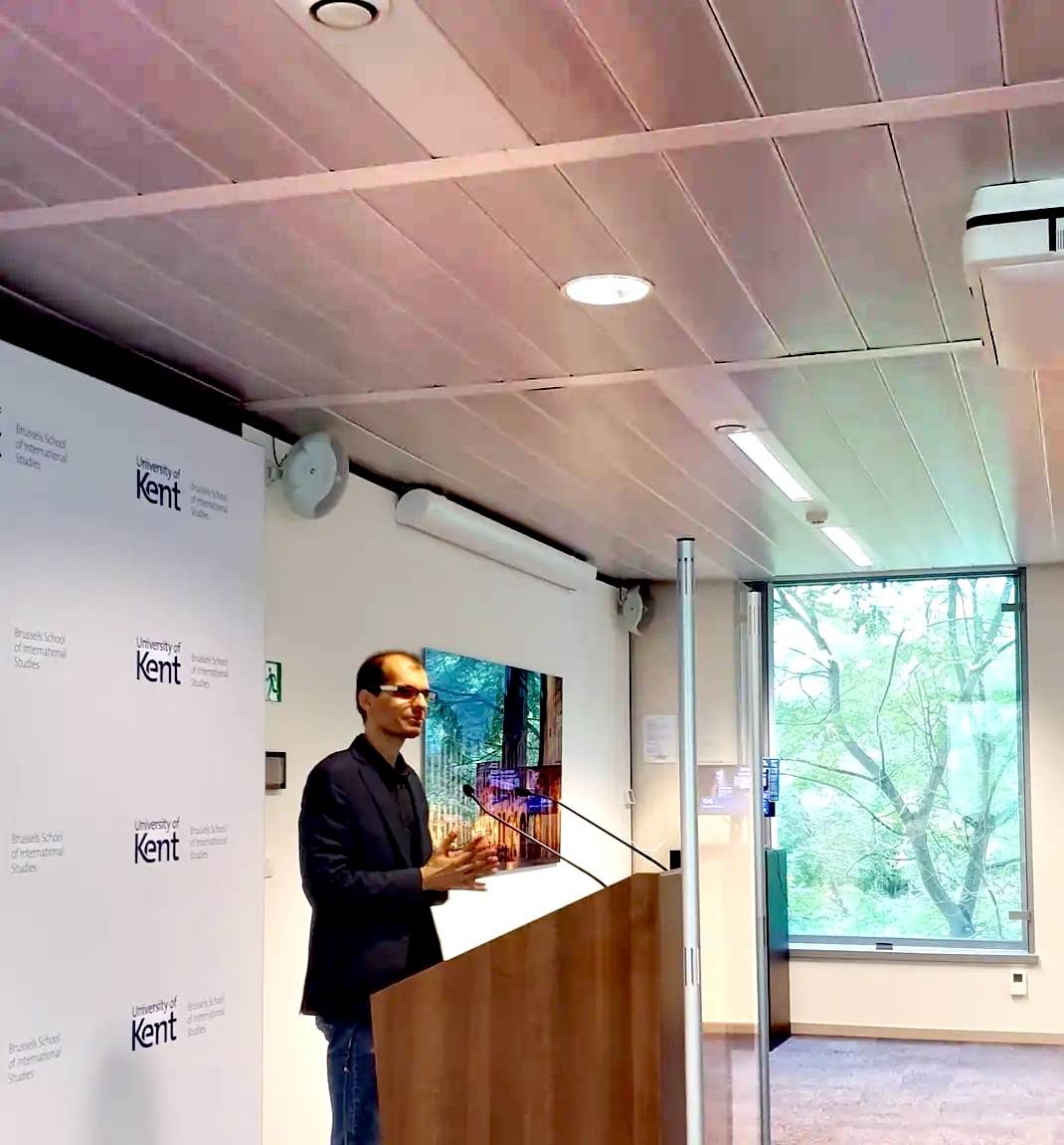
Dr Reda Mahajar
About
Dr. Reda Mahajar is a research fellow at The Conflict Analysis Research Centre (CARC) at the University of Kent. His current postdoctoral research focuses on the ways in which the Hajj rituals reproduces the ‘Sunni’ and ‘Shia’ labels as categories of power in Western Europe.
Dr. Mahajar earned his PhD in International Relations at the University of Kent. His PhD dissertation is titled: Shialism: The Historical Persistence of the Sunni-Shia Binary. His doctoral research puzzle explores how and why the Sunni-Shia divide (re)produces and (re)circulates throughout the spaces and histories of the so-called ‘Arab and Muslim worlds’ as well as in the ‘proverbial West’. Yet as social actors ‘Sunni’ and ‘Shia’ are heterogeneous, with their own internal antagonisms. For example, secular pan-Arab Sunnism is antagonistic to the Sunnism of Islamist terrorist groups, such as ISIS. Furthermore, the labels ‘Sunni’ and ‘Shia’ are not distinct but are instead defined in relation to each other. Given these internal divisions and mutually constitutive relations, the significance and apparent solidity of the designations ‘Sunni’ and ‘Shia’ in contemporary politics is puzzling. What sustains the enduring unity of ‘Shia’ and ‘Sunni’ designations given the diversity of the political, cultural, and economic contexts in which populations labelled ‘Shia’ and ‘Sunni’ inhabit? To answer this research question, Dr. Mahajar examined the historical stubbornness of ‘Sunni’/‘Shia’ labels as products of power in the ‘Arab’ and ‘Muslim’ worlds as well as in the ‘proverbial West’ in his doctoral thesis.
His first degree was in Politics and International Relations from the University of London (Lead College: LSE) he earned his MRes Educational and Social Research Methods with distinction from the University of London (Lead College: UCL Institute of Education), and he earned a graduate certificate in International Development from the University of London (Lead College: LSE). Dr. Mahajar was a research affiliate at the Centre for Arab and Middle Eastern Studies at the American University of Beirut.
Dr. Mahajar was a Visiting Lecturer in International Migration at the Brussels School of International Studies, University of Kent in 2021-2022 (His position included curriculum design, teaching, postgraduate taught student supervision, and marking)
For three years, he served as a Postgraduate Teaching Assistant at the Brussels School of International Studies, University of Kent. His TA position was in International Relations research methodologies.
His research interest is in post-structuralist discourse analysis and particularly in developing his post-structuralist synthesis of Foucauldian genealogical discourse analysis and Derrida’s deconstructionism.
Dr. Mahajar is especially interested in examining the ontological, temporal, and epistemological assumptions that underpin the conceptualizations of identities as categories of power in the fields of international relations, migration, Middle Eastern and nationalism studies.
Research interests
Dr. Mahajar is especially interested in examining the ontological, temporal, and epistemological assumptions that underpin the conceptualizations of identities as categories of power in the fields of international relations, migration, Middle Eastern and nationalism studies.